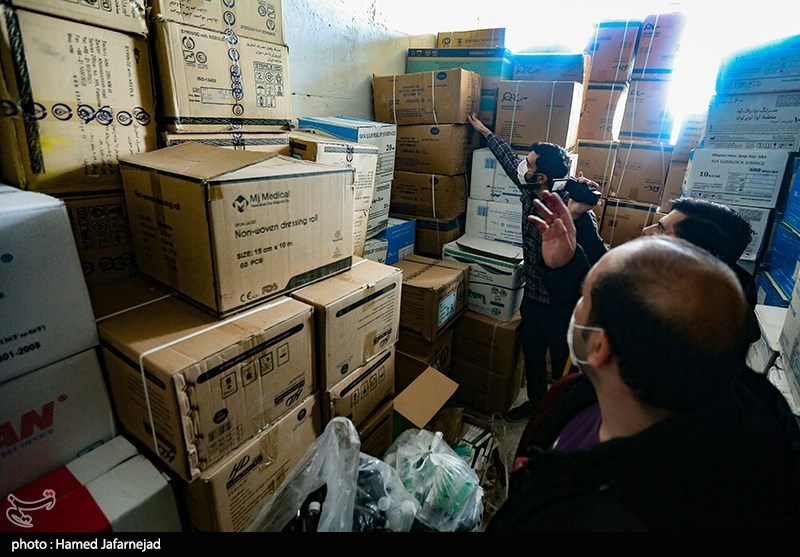On March 3, Supreme Leader Ayatollah Ali Khamenei ordered the mobilization of the military to help fight the coronavirus outbreak. Authorities said that 300,000 troops from the Revolutionary Guards (IRGC) and its Basij paramilitary force would deploy to help sanitize public places, direct traffic, and test and treat citizens. “The sons of the Iranian nation at the IRGC and Basij (voluntary forces) will remain ready and active on the scene of cooperation and assistance until the disease is fully defeated and the conditions are back to normal,” the IRGC said in a statement. The military was also tasked with tracking people who had contact with infected patients before they showed symptoms, Health Ministry spokesman Ali Reza Raisi said. Videos posted on social media showed military trucks disinfecting streets and sidewalks in several Iranian cities.
The Revolutionary Guards established command centers and opened military medical facilities to treat civilian patients. “We have set up centers across the country to help people to tackle the virus,” a Guards commander said. “We need national cooperation to tackle this crisis.”
On March 4, General Alireza Jalali, the president of Baqiatollah Medical Sciences University, said that a vaccine being tested by medical research facility affiliated with the IRGC was awaiting approval from Iran’s Food and Drug Organization. The IRGC said that it was developing its own coronavirus testing kit. The military also helped produce and distribute hygiene products such as face masks.
Iran's armed forces opens up an emergency production line dedicated to the production of face masks amid the Coronavirus outbreak. pic.twitter.com/l9ekX27sUn
— ســـاســـان 🇮🇷 (@eghtesadnia) February 26, 2020
The IRGC pledged to help curb hoarding of medical supplies. On March 2, Hassan Hassanzadeh, a Revolutionary Guards commander, announced that the IRGC had confiscated 28 million medical gloves that had been hoarded illegally in two warehouses south of Tehran. “Show no mercy to hoarders of medicine and medical supplies,” Iran’s judiciary chief Ebrahim Raisi told police and prosecutors.
On March 3, Tehran Mayor Pirouz Hanachi Tehran issued an order mobilizing firefighters to help decontaminate public venues, markets, subway stations, bus stops, public toilets and benches.

By March 11, at least five IRGC members had reportedly died from the virus.
On March 13, Major General Mohammad Bagheri, the armed forces chief of staff, announced that the military would clear the streets nationwide in 24 hours and check each citizen for coronavirus. He said that the military had formed a task force to empty streets and shops. "During the next 10 days, the entire Iranian nation will be monitored once through cyberspace, by phone and, if necessary, in person, and those suspected of being ill will be fully identified," Bagheri said.
By March 16, the IRGC reportedly had 24 hospitals, 13 mobile hospitals and 380 clinics to help treat coronavirus patients.
On March 27, military officials announced the completion of a 2,000-bed field hospital in an exhibition center in Tehran. General Ali Jahanshah said that the hospital would begin receiving patients the following week.
On April 14. the IRGC announced that it had set up an operating base with Iranian charity groups to provide aid packages to 3.5 million under-privileged households in the country.
On April 27, IRGC Spokesman General Ramezan Sharif said that the Revolutionary Guards and Basij force had provided aid packages for 3.5 million Iranian families.
Photo Credit: IRGC Raid by Tasnim News Agency (CC BY 4.0)
